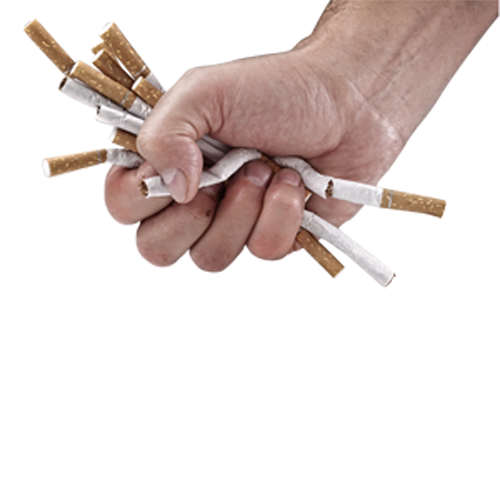Quitting smoking is probably the best way to reduce your risk of lung cancer. Here are some facts that will convince you to quit smoking.
The lungs are the most important organs of the respiratory system and are largely responsible for breathing. They have a dual function: supplying oxygen to the body and expelling carbon monoxide.
When cancer develops in the lungs, abnormal cells begin to multiply chaotically and create a mass, also called a tumour. There are two main types of lung cancer:
- “small cell lung cancer” (SCLC), also called “oat cell” (10 to 15% of cases)
- “non-small cell lung cancer” (85 to 90% of cases)
Not only is the "non-small cell" type more common, but it usually progresses less rapidly than the more aggressive "small cell" type.
The lungs can also be the site of metastases from a cancer located in another part of the body (e.g. breast cancer that has spread to the lung). In this case, it is not lung cancer per se, and the medical treatment will depend on the origin of the cancer.
The cigarette: a major culprit
Although many factors can contribute to the development of lung cancer, it is generally accepted that smoking and exposure to second-hand smoke are largely responsible. Studies have shown that over 90% of lung cancer cases in men are directly related to smoking. This compares to 70% in women.
Tobacco smoke contains about 4,000 chemicals, about 50 of which are carcinogenic. The risk of developing lung cancer varies depending on a number of factors, including how long a person has been smoking, the age at which they began, and the number of cigarettes they smoked per day.

Take action now to live longer
Cigarettes are the biggest threat to the health of smokers. In addition to significantly increasing the risk of lung cancer, it increases the likelihood of the following conditions:
- respiratory diseases, including asthma, emphysema, and chronic bronchitis
- cardiovascular diseases, including myocardial infarction (heart attack) and stroke (cerebrovascular accident, CVA)
- other types of cancers, including cancer of the mouth, throat, stomach, pancreas and bladder
- mental illnesses, including depression and anxiety
- premature aging
- skin diseases

Smoking not only reduces your life expectancy, it also compromises your quality of life. In other words, if you smoke, you are likely to live less well and, more importantly, less long.
Adopting a good lifestyle such as eating a healthy, balanced diet, exercising regularly, maintaining a healthy weight, sleeping well and avoiding stress can all reduce your risk of developing diseases such as cancer. However, if you smoke, none of these measures will match the benefits of quitting. Some of the many payoffs you'll get from quitting smoking for good include the following two:
- after five years, your risk of dying from lung cancer will be cut in half
- after 10 years, your risk will be comparable to that of a non-smoker
Some advice
If you want to quit smoking, here are some tips:
- Involve your friends and family.
- Make sure you have the advice and support of a qualified healthcare professional, such as your pharmacist.
- Use a smoking cessation aid such as a patch, gum, lozenges, nicotine inhaler or spray, or oral medication. Without help, your chances of success are very slim.
- Eliminate temptations as much as possible: get rid of your cigarettes, ashtrays, etc.
- Find out about smoking cessation and how to quit. The more informed you are, the better you'll be able to deal with the pitfalls and challenges you'll face.
- Visit www.iquitnow.qc.ca.
Too many people wait until they're backed into a corner before they start a serious smoking cessation program. Don't wait until it's too late. Take the next step to avoid becoming a statistic! Your pharmacist can help you quit smoking; consult now!

